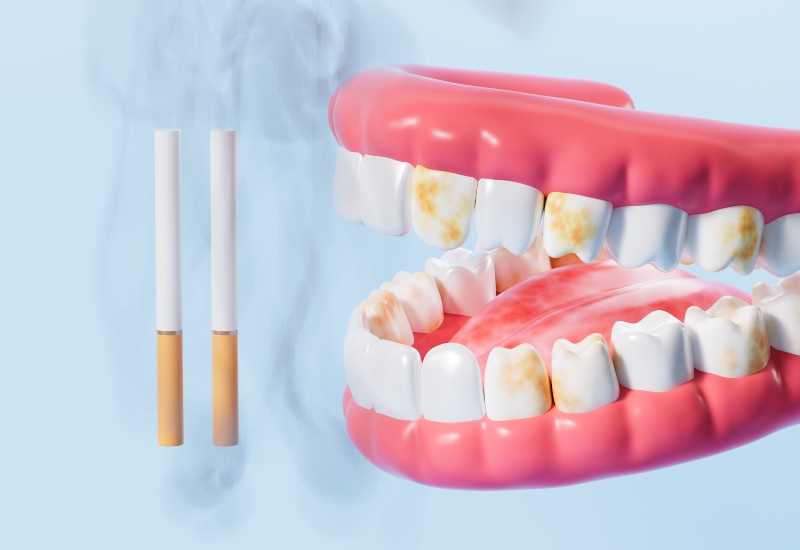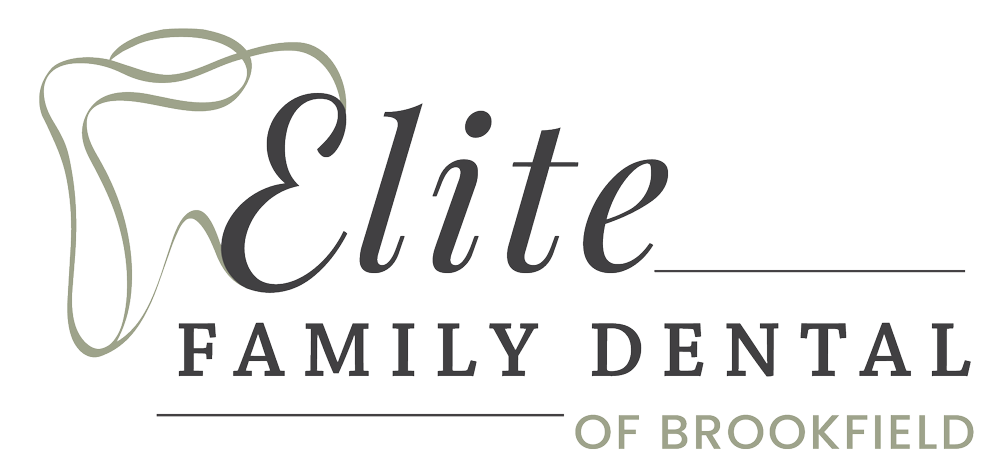How Smoking Increases Your Risk for Gum Disease
Smoking and the Gum Disease Health Risks
Your morning cigarette might seem harmless, but your gums are paying a steep price. Every cigarette damages the delicate tissue that keeps your teeth anchored, creating the perfect storm for gum disease. Elite Family Dental of is breaking down smoking and the gum disease health risks for our patients.

The Basics of Gum Disease
Gum disease, also called periodontal disease, starts quietly. Bacteria build up along your gum line, forming a sticky film called plaque. When plaque hardens into tartar, it becomes a breeding ground for infection. Your gums become red, swollen, and bleed easily. Left untreated, the infection destroys the tissue and bone supporting your teeth. What begins as simple gingivitis can progress to advanced periodontitis, where teeth become loose and may fall out entirely.
Why Smoking Makes Everything Worse
Smoking doesn’t just stain your teeth. It sabotages your mouth’s natural defenses. Nicotine restricts blood flow to your gums, starving them of oxygen and nutrients needed to fight infection. Without proper circulation, your immune system can’t detect or combat bacterial invasion effectively. Smoking also reduces saliva production, which normally helps wash away harmful bacteria. The toxic chemicals in tobacco create an ideal environment for aggressive bacterial strains to flourish, accelerating gum disease.
What Research Reveals About Smoking and Your Gums
Research shows smokers are three to six times more likely to develop severe gum disease compared to non-smokers. Heavy smokers face even grimmer odds. Those who smoke more than a pack daily have nearly seven times the risk. Even light smoking significantly increases your chances of tooth loss. Studies indicate that smokers lose an average of 2.9 teeth by age 65, while non-smokers typically lose only 1.2 teeth in the same timeframe.
Risk Factors for Gum Disease
While smoking remains the biggest controllable gum disease risk factor, other conditions compound your vulnerability. From health issues like diabetes to uncontrollable inherited genetic predispositions, there are many factors that affect your likelihood of developing serious gum disease. Here are the most concerning risk factors of gum disease beyond smoking:
- Diabetes: High blood sugar creates an ideal environment for bacteria to multiply rapidly.
- Medications: Blood thinners, antidepressants, and heart medications can reduce saliva production.
- Stress: Chronic stress weakens your immune system’s ability to fight gum infections.
- Poor nutrition: Vitamin C and calcium deficiencies compromise gum tissue health.
Signs That Your Gums Are in Trouble
Smokers often miss early warning signs because nicotine masks symptoms. Reduced blood flow means less bleeding and swelling. Your gums might look healthier than they actually are. Pay attention to persistent bad breath that doesn’t improve with brushing or mouthwash. Receding gums expose tooth roots, causing sensitivity to hot or cold foods. Loose teeth or changes in your bite signal advanced disease. Pus between teeth and gums indicates a serious infection requiring immediate professional treatment.
Beyond Your Mouth: The Bigger Picture
Gum disease doesn’t stay confined to your mouth. The same bacteria causing periodontal infection can enter your bloodstream, triggering inflammation throughout your body. This systemic inflammation increases your risk of heart disease, stroke, and diabetes complications. Pregnant women with gum disease face higher chances of premature birth and low birth weight. The connection between oral health and overall wellness means neglecting your gums puts your entire body at risk.
Quitting Changes Everything
There’s good news for smokers, though. Your mouth begins healing remarkably quickly after you quit smoking. Within weeks, blood flow to your gums improves, strengthening their infection-fighting ability. After one year of being smoke-free, your risk of gum disease drops significantly. Former smokers who quit before age 30 have nearly the same periodontal health as people who never smoked. Even quitting later in life provides substantial benefits. So, everyone should know that it’s never too late to improve their gum care.
Protecting Your Gums Takes Strategy
Good oral health habits become crucial when you’re dealing with elevated risk. Brush twice daily with fluoride toothpaste, focusing on the gum line where bacteria accumulate. Floss daily to remove plaque between teeth that your toothbrush can’t reach. Antimicrobial mouthwash helps reduce bacterial load, but it’s not a substitute for mechanical cleaning. Consider these additional protective measures:
- Professional Cleanings Every 3-4 Months: More frequent visits help control plaque buildup
- Electric Toothbrushes: Remove more plaque than manual brushing alone
- Water Flossers: Effective for reaching deep periodontal pockets
- Vitamin C Supplements: Support gum tissue repair and immune function
- Sugar-Free Gum: Stimulates saliva production to neutralize harmful acids
Is It Time for Professional Help?
Don’t wait for pain to see a dental professional. Advanced gum disease often doesn’t hurt. Schedule an evaluation if you notice bleeding gums, persistent bad breath, or loose teeth. People who smoke or have multiple risk factors should see a periodontist annually for specialized assessment. Early intervention prevents minor problems from becoming major tooth loss situations. Professional deep dental cleaning can halt disease progression when caught in time.
Your Gum Health Questions Answered
Have questions about gum health and periodontal care? You’re not alone. We’ve put together the answers to some of the most common questions to help you better understand how to maintain a healthy smile and prevent gum disease. Whether you’re wondering about prevention, treatment options, or signs to watch for, we’ve provided the answers below.
Can gum disease be reversed?
Early-stage gingivitis is completely reversible with proper care and professional treatment. Advanced periodontitis can be managed but not fully reversed because things like lost bone and tissue don’t regenerate naturally.
How long after quitting smoking will my gums improve?
Circulation begins improving within 24 hours, and noticeable gum health improvements typically occur within 2-12 weeks of quitting.
Are e-cigarettes safer for the gums?
While potentially less harmful than traditional cigarettes, e-cigarettes still contain nicotine and chemicals that damage gum tissue and increase infection risk.
Schedule a Gum Care Appointment Today!
Your gums deserve better than being casualties of smoking. Understanding who is at risk for gum disease empowers you to make informed decisions about your oral health. Whether you’re ready to quit smoking or need strategies to minimize damage while you work toward quitting, professional dental care makes the difference between keeping your teeth and losing them. Don’t let gum disease rob you of your smile. Schedule an appointment with Elite Family Dental of Brookfield today to assess your periodontal health and develop a personalized prevention plan that works with your lifestyle.
